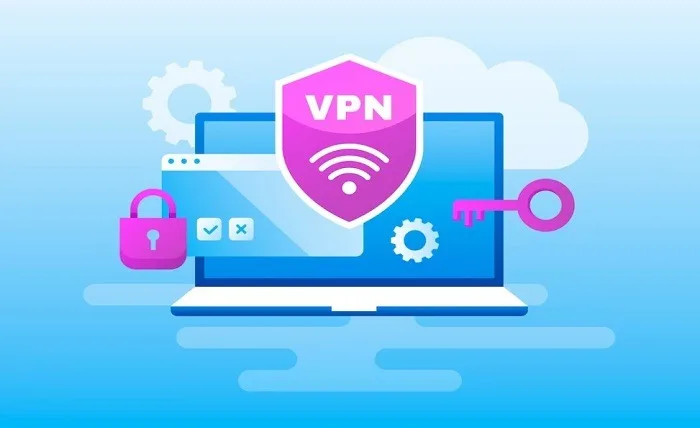In today’s digital world, privacy concerns have become more significant than ever before. With an increase in cyber attacks and government surveillance, it has become necessary to always protect our online activities. There are various tools available to ensure online privacy, and VPN is one of the most popular amongst them. While VPN alone does the job to some extent, combining it with port forwarding can maximise the privacy and security. Virtual Private Networks (VPNs) have become increasingly popular over the past few years, and with good reason. A VPN encrypts your internet traffic and hides your IP address, keeping your online activity private and secure. But, there are times when you might need to access devices on your home network or connect to a game server that requires port forwarding. This is where VPN with port forwarding come in handy.
- What is a VPN with port forwarding?
VPN or Virtual Private Network is an encrypted tunnel that helps protect your online privacy by masking your IP address and encrypting the traffic that passes through it. Port forwarding, on the other hand, is a feature that enables network traffic to be redirected from one IP address and port number combination to another. When combined, VPN with port forwarding creates a secure, encrypted path between your device and the internet, allowing traffic to pass through specific ports on the VPN server.
- Benefits of VPN with port forwarding
While VPN alone can protect your online activities from eavesdropping, combining it with port forwarding can help you overcome some of its limitations. The VPN with port forwarding enables you to connect to devices that are behind a firewall, share files securely, and make online gaming more secure. It also allows you to access content that is restricted due to geo-blocking. In addition, by using a dedicated port, you can bypass internet service provider (ISP) traffic shaping, which can often slow down your connection.
- How to set up VPN with port forwarding
The setup process for VPN with port forwarding is quite simple, and it can be configured on most VPN services. Different VPN providers offer various ways to implement this feature, so always check out their documentation. The first step is to make sure your device supports port forwarding. Next, identify the port or ports that you want to forward. Once you have these settings in place, you can then set up your VPN and enable the port forwarding feature.
- Limitations of VPN with port forwarding
While VPN with port forwarding has several advantages, it has some limitations as well. Port forwarding requires additional configuration, which can be challenging for some users. Also, the VPN server must be compatible with the specific ports or protocols that you are using. Moreover, the ISP may still be able to see that you’re using a VPN and could block VPN traffic on specific ports. Lastly, port forwarding can potentially expose services running on your device to the internet, making them vulnerable to cyber-attacks.
- Understanding VPN with Port Forwarding
Most VPN services only offer a single IP address for all users to use, which prevents users from accessing devices on their home network that are not exposed to the internet. However, VPNs with port forwarding allow users to access devices on their home network by forwarding the necessary ports. Port forwarding is the process of redirecting incoming data to a specific port on a device within a private network. With VPN port forwarding, you can securely access your home computers, game servers, and other devices that are connected to your local network while you’re away from home.
- How VPN with Port Forwarding Works
When you connect to a VPN with port forwarding, the VPN provider assigns you a unique port number, which is then associated with your IP address. When a request is made to the VPN server on that port number, it’s forwarded to your device on your home network. The data is encrypted by the VPN before it’s sent to your device, ensuring that it’s secure. With VPN port forwarding, you can access your devices from anywhere, even if they’re not exposed to the internet.
- Why You Need VPN with Port Forwarding
There are several reasons why you might need VPN with port forwarding. For example, if you have a home security camera system that’s only accessible from your home network, you might want to access it from your office or while you’re away from home. Or, if you’re an avid gamer, you might need to connect to a game server that requires port forwarding. Whatever the reason, having VPN with port forwarding will make it possible for you to securely access your devices from anywhere in the world.
- Choosing the Right VPN with Port Forwarding
Not all VPNs offer port forwarding, so it’s important to choose a VPN provider that supports it. The best VPNs with port forwarding will offer high-level security features, fast connection speeds, and a range of protocols to choose from. Some of the top VPN providers with port forwarding include ExpressVPN, NordVPN, and PureVPN. It’s also important to choose a VPN provider that has servers in locations that are close to you, as this will reduce latency and improve performance.
VPN with port forwarding is an excellent way to enhance online privacy and security and overcome VPN limitations. It allows you to bypass internet service provider traffic shaping and access geo-blocked content. Setting it up is relatively straightforward, and most VPN services offer this feature. While there are some limitations or disadvantages, it’s still an effective way to leverage the power of a VPN and maximise your online privacy and security.
If you’re looking to securely access devices on your home network or connect to a game server that requires port forwarding, a VPN with port forwarding is the solution you need. It’s the perfect way to keep your online activity private and secure while still being able to access all the devices you need on your home network. When choosing a VPN with port forwarding, look for a provider that offers high-level security features, fast connection speeds, and servers in locations that are close to you. With the right VPN provider, you’ll be able to enjoy all the benefits of a VPN with the added bonus of port forwarding.



